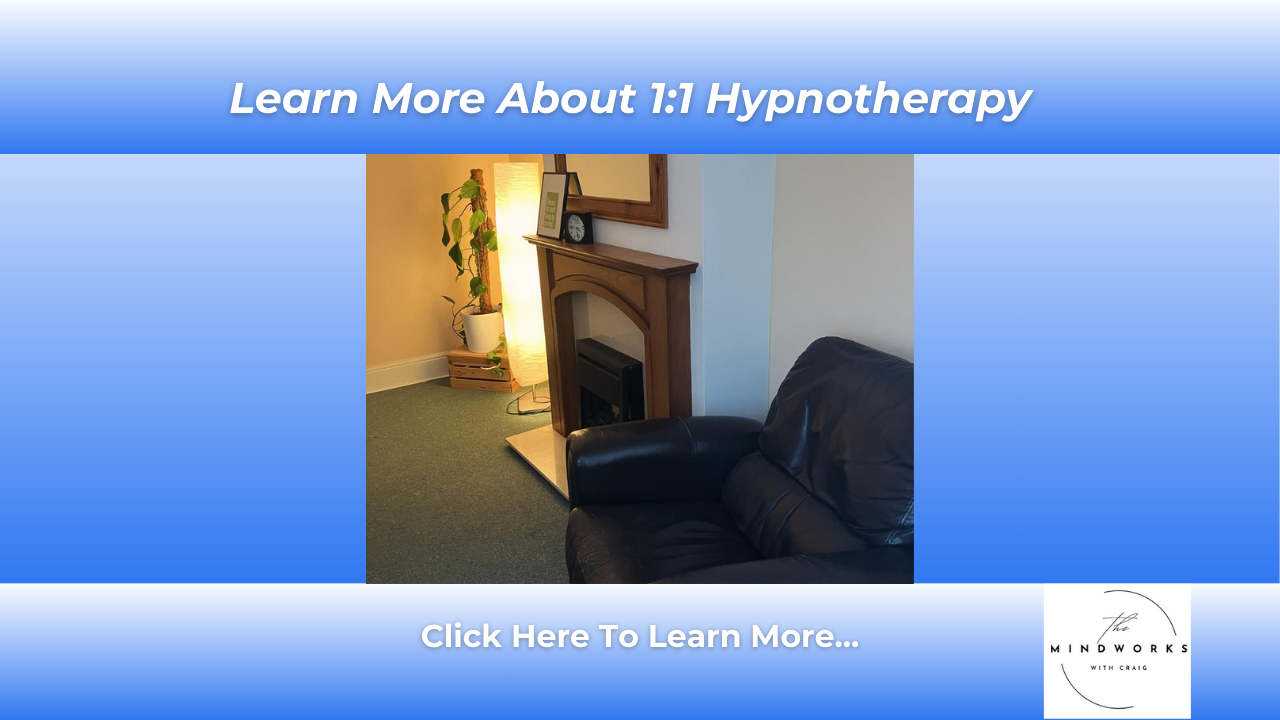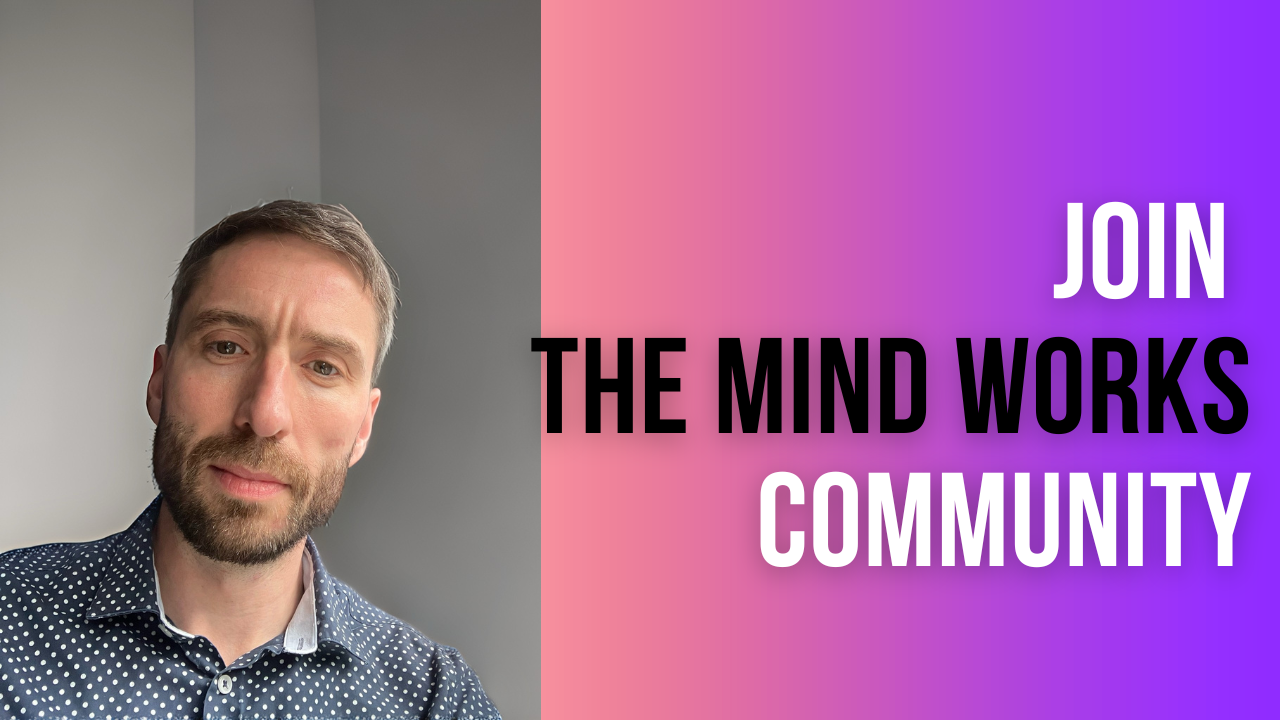🧠 ADHD & The Mind Works: Tools to Support Focus, Energy & Emotional Rhythm
🔍 You’re Not Lazy. You’re Not Broken.
Many adults with ADHD have spent a lifetime being told to “just concentrate.”
But real focus doesn’t come from trying harder — it comes from understanding how your mind works.
In ADHD, your brain often wants to focus… but just can’t.
Tasks that feel boring or disconnected don’t activate the right systems.
Your mind races or goes blank. You switch tasks, forget what you were doing, or feel overwhelmed.
This isn’t about willpower.
It’s about your nervous system, brain networks, and dopamine regulation — all of which can be worked with.
⚙ What ADHD Actually Is (The Brain Science Bit)
Modern neuroscience shows ADHD is more than distraction. It’s a difference in how brain networks coordinate attention.
Here’s what the latest research (including Dr. Andrew Huberman’s work) tells us:
-
🧠 DMN Overactivation – The Default Mode Network stays too active when trying to focus, pulling attention inward (daydreaming, rumination).
-
🌐 Insula Dysregulation – The insula (your brain’s attention switchboard) may struggle to shift focus between thoughts and external cues.
-
🌀 Dopamine Imbalance – Dopamine helps your brain filter noise and sustain attention. In ADHD, this system can be underactive — making it harder to “lock on.”
-
🔄 Executive Function Friction – Tasks that feel irrelevant, overwhelming, or too abstract don’t spark the mental engagement needed to start or continue.
This doesn’t mean you can’t focus. It means your brain needs support — not shame.
🔑 What Mental Strength Means with ADHD
In The Mind Works, Mental Strength isn’t the ability to power through.
It’s the ability to:
-
Notice when your attention drifts.
-
Pause gently without judgment.
-
Come back to what matters — again and again.
For those with ADHD, this means starting where you are, not where you think you should be.
With the right support, focus is a skill you can grow — even if it feels impossible right now.
🔧 Tools That Can Help (Especially With ADHD)
Each of these tools is designed to work with your brain, not against it. They can all be adapted to ADHD.
1. Tower Block – Understand Your Current Capacity
-
ADHD isn’t constant — it fluctuates with energy, stress, sleep, and sensory load.
-
Tower Block helps you name where you are today (e.g., Level 3 = Comfort-seeking gear).
-
This lets you match tools to your current state (not force change when your system isn’t ready).
2. Pressure Gauge + HRV
-
Tracks your nervous system load and helps you notice when your “fuel tank” is low.
-
HRV tracking (e.g. Oura, Welltory) can show how recovery, food, sleep, and overstimulation affect focus.
-
Helps prevent the crash-and-burn cycle often seen in ADHD.
3. Parts of Self
-
ADHD can feel like internal conflict: one part wants to act, another part avoids.
-
Our model helps you understand this inner tension between your Protective, Actual, and Ideal Selves — and gently move forward without blame.
4. Breathwork + Interoceptive Awareness
-
Simple breath exercises (like 6 breaths per minute) increase focus and calm.
-
Contrary to old myths, people with ADHD are aware of their internal state — but often overwhelmed by it.
-
Breathwork helps you create space between sensation and reaction.
5. Sensory Focus Training
-
ADHD brains often respond well to targeted sensory attention.
-
Practice holding your gaze on a fixed point (1–2 minutes), or consciously limit blinking — this resets visual attention circuits and dopamine tone (Huberman protocol).
-
Combine with movement first (e.g. stretch, squats, brief walk).
6. SSRG Nutrition & Blood Sugar Support
-
Stable blood sugar = more stable attention.
-
SSRG (Simple, Steady, Ready, Glow) rhythms can help reduce spikes, crashes, and reactive eating that disrupts dopamine levels.
-
Especially useful in ADHD-related emotional eating or energy crashes.
7. Pacing and Dopamine Cycles
-
Work with dopamine rhythms, not against them.
-
Use the Pomodoro Technique or Ultradian Cycles: 25 mins of focus, then 5–10 mins of movement or rest.
-
Meaningful progress comes from rhythm, not relentless pressure.
🎧 Highly Recommended: Andrew Huberman on ADHD
“Dopamine is the conductor of focus. ADHD is not a lack of willpower — it’s a conductor that’s not tuning the orchestra.”
In this podcast, Huberman explains:
-
Why ADHD brains struggle with suppression of the DMN.
-
The role of dopamine, blink rate, and exteroceptive awareness.
-
Practical tools (many included above) to support natural focus.
🎧 Listen to “ADHD & How Anyone Can Improve Their Focus” – Huberman Lab Podcast
📍 UK-Based Support for ADHD
✅ NHS and Diagnosis:
-
Speak to your GP – ask for a referral to an ADHD assessment service (waiting lists may apply).
-
Right to Choose services may allow private assessments via NHS funding (e.g. Psychiatry UK).
✅ Charities & Organisations:
-
ADDISS – ADHD Information Service
-
UK Adult ADHD Network – Professional guidance and support.
✅ ADHD-Friendly Tools & Apps:
-
FocusMate – body double/co-working support.
-
Structured App – ADHD-friendly calendar/task management.
-
Braintoss / Otter.ai – get thoughts out of your head fast.
-
Tide – Pomodoro + soothing soundscapes.
✨ Final Word: You Are Not Behind
Living with ADHD doesn’t mean you’re incapable — it means your nervous system is wired differently.
We’re here to help you learn how it works, so you can move forward with rhythm, self-respect, and clarity.
Small changes. Honest reflection. Repeated practice. That’s how Mental Strength is built — even in the ADHD brain.
Ways to Work With Me
There’s no single right way to begin. Some people want immediate relief. Others want deeper personal work. Some prefer to learn at their own pace.
The options below are designed to meet you where you are now not where you think you should be.
If you’re unsure which path is right for you, starting with a Reset Session is usually the simplest option.

🔄 Reset Sessions
If you feel stuck, overwhelmed, or at a crossroads, a Reset Session offers a focused pause and a way forward.
In 90 minutes, we work to settle your system, make sense of what’s happening, and create a clear, practical next step.
This is often the best place to start if things feel urgent or tangled.

🧩 1:1 Hypnotherapy
For deeper, ongoing therapeutic work.
These sessions help you explore patterns, beliefs and emotional responses, using hypnotherapy and psychological tools to support lasting change.
This is a good fit if you want space to work through things gradually and properly.

📚 Online Courses
If you prefer to work independently, the courses offer structured, self-paced learning using the same frameworks I teach in sessions.
You’ll gain understanding, tools and clarity, with the flexibility to move at your own speed.


